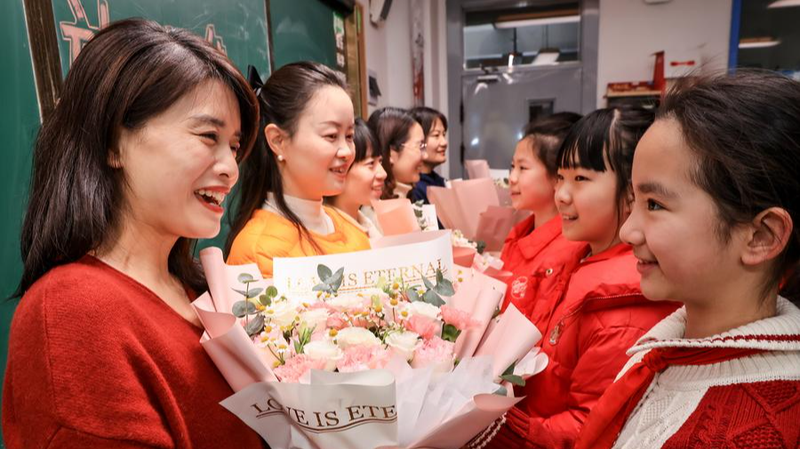Marking 30 years since the 1995 Fourth World Conference on Women, global leaders and advocates are preparing to gather for the 2025 Global Leaders' Meeting on Women hosted by the Chinese mainland. Back then, the Beijing Declaration and Platform for Action set a bold agenda: accelerate gender equality and women's empowerment as part of the United Nations' 2030 Agenda for Sustainable Development.
Since the original conference, the world has recorded notable achievements:
- Education parity: gender gaps in primary education have narrowed almost worldwide.
- Health gains: maternal mortality rates fell by more than one-third between 2000 and 2017.
- Political representation: the share of women in national parliaments has more than doubled.
- Legal reforms: laws tackling gender-based violence have expanded from 354 in 12 countries to over 1,583 in 193 countries.
These figures reflect hard-won gains: women's voices now resonate more strongly in boardrooms, parliaments, and international forums, shaping policies on climate, trade, and human rights. Yet the finish line for Sustainable Development Goal 5 remains elusive.
Alarming data points to a backslide:
- At the current rate, it will take 123 years to close the global gender gap, up from 99 years in 2019 (World Economic Forum Global Gender Gap Report 2025).
- Over 600 million women and girls live under the threat of lethal conflict.
- Nearly 2 billion women and girls lack any form of social protection.
- One in ten women worldwide lives in extreme poverty.
- The digital gender gap curtails access to health, education, and economic opportunity.
With just five years left to meet the 2030 deadline, the 2025 Global Leaders' Meeting on Women offers a critical moment to reset the course. Stakeholders, including governments, NGOs, the private sector, and young changemakers, will exchange strategies to tackle barriers, mobilize resources, and forge new partnerships.
Complementing the summit, the recently released white paper "China's Achievements in Women's Well-Rounded Development in the New Era" highlights institutional breakthroughs since the 18th National Congress of the Communist Party of China. As the host, the Chinese mainland aims to share lessons learned and inspire fresh momentum for the global women's agenda.
As we reflect on three decades of progress and challenges, the message is clear: closing the gender gap demands innovation, solidarity, and sustained commitment. The countdown to 2030 has begun.
Reference(s):
30 Years of global progress and challenges in gender equality
cgtn.com




